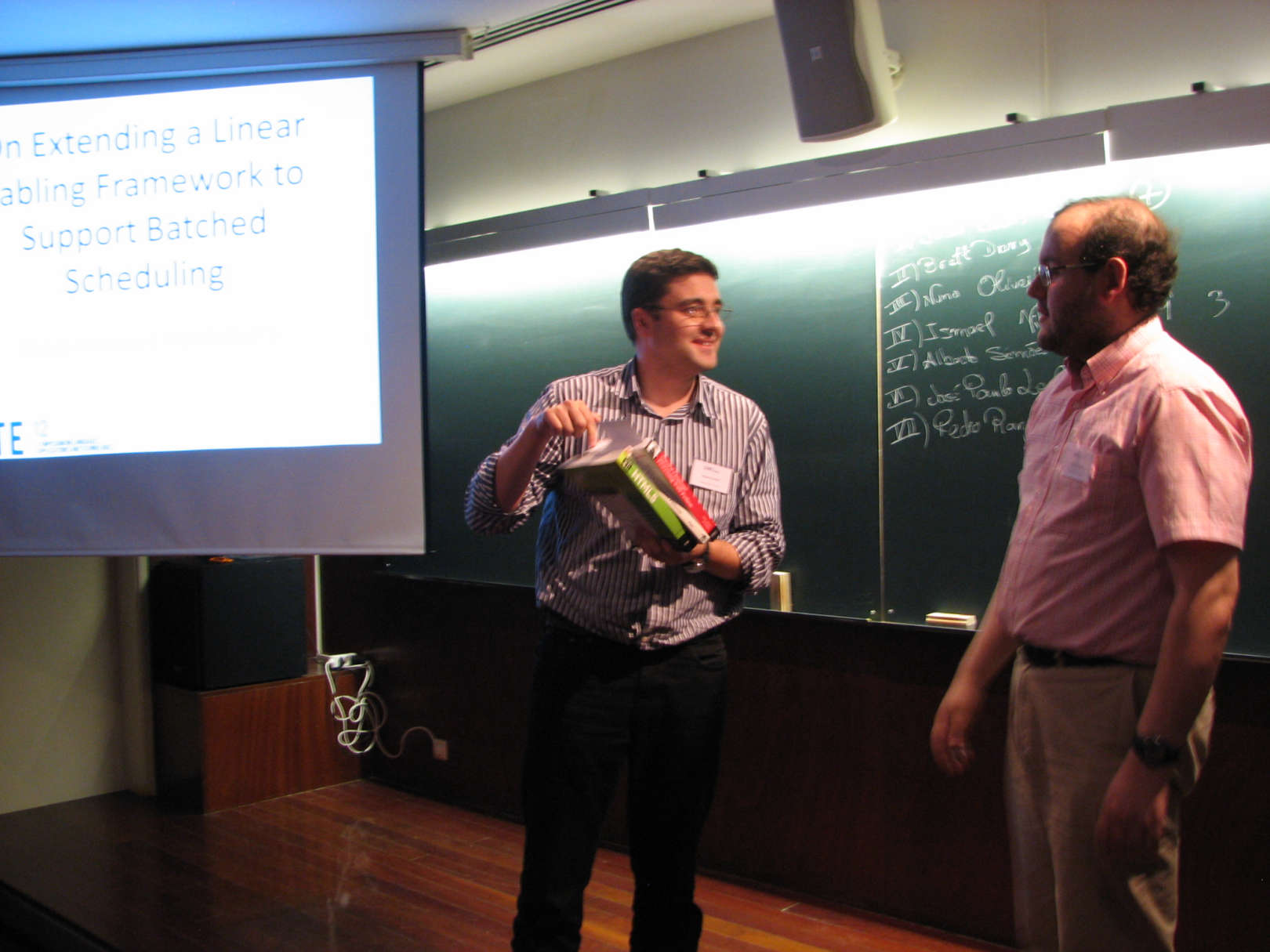CRACS/INESC TEC wins awards at conference
An article written by José Paulo Leal, Vânia Rodrigues and Ricardo Queiroz, researchers at INESC TEC’s Center for Research in Advanced Computing Systems (CRACS), was awarded the "Best Paper Award" as part of the 2012 SLATE Conference, held in Braga, Portugal, on 21 and 22 June. As part of the same conference, CRACS researchers Ricardo Rocha and Miguel Areias received the award for best presentation.
06th August 2012
The article, entitled "Computing semantic relatedness using DBpedia," proposes a new way to assess the degree of relationships between concepts from the information available in Wikipedia tables, using semantic web techniques and access points to the data provided by DBpedia. The DBpedia is a project that aims to extract structured information created in the Wikipedia.
In addition, this paper describes the use of this approach to create a web adaptability module for the social network Palco Principal. The article was the result of Vânia Rodrigues’s MSc carried out within the Palco 3.0 project, funded by NSRF (National Strategic Reference Framework), which joined the Palco Principal company and INESC TEC as partners.
The second award was given to researchers Miguel Areias and Ricardo Rocha for the scientific paper "On Extending the Linear Tabling batched Scheduling Framework to Support", which discusses the efficient implementation of linear tabling mechanisms in high level programming language environments, such as YAP - Yet Another Prolog.
This work was conducted as part of project LEAP - Logic Environments for Advanced Parallelism, which began in late 2011 and will be concluded in 2014. This project takes advantage of the potential of Logic Programming in exploring parallelism in Programming Languages. The aim is to develop new techniques that will explore these parallelisms for large-scale applications.
This conference’s target audiences were researchers and practitioners interested in studying language aspects.
BIP, July 2012


